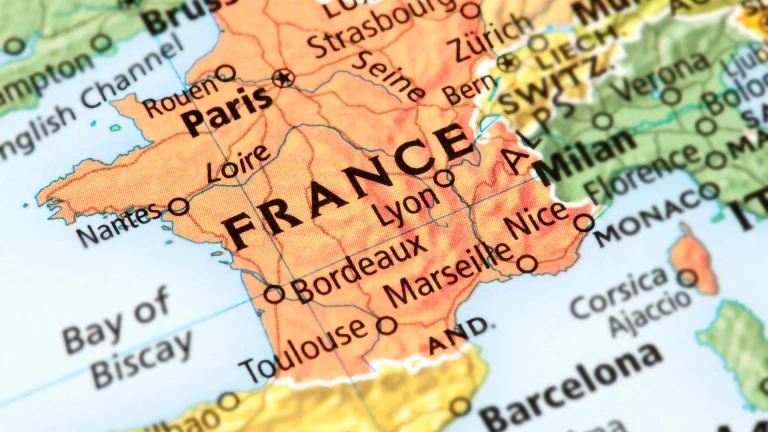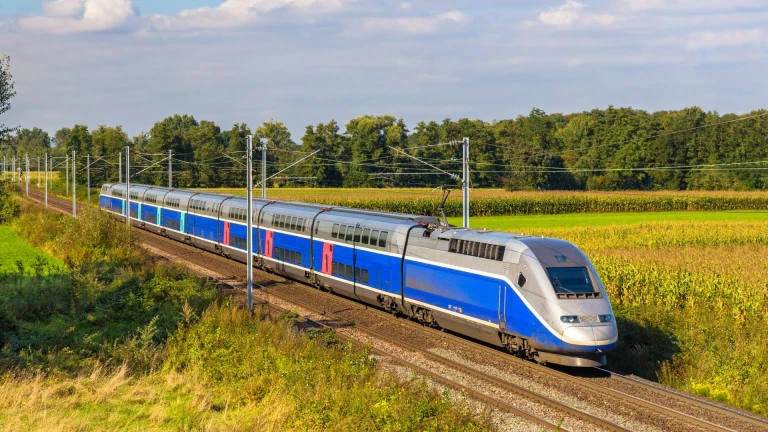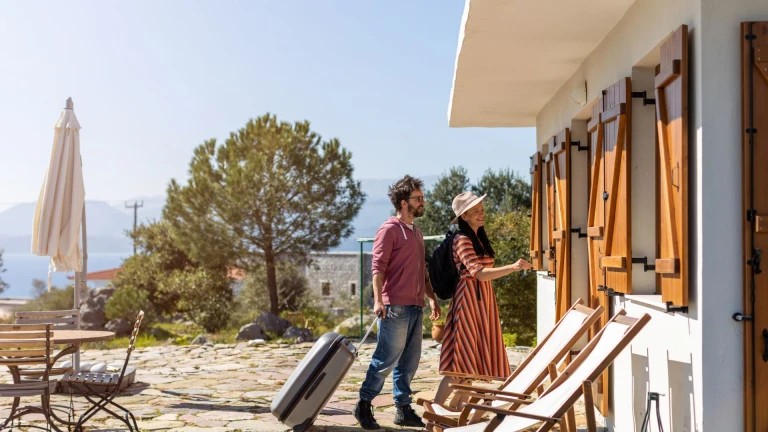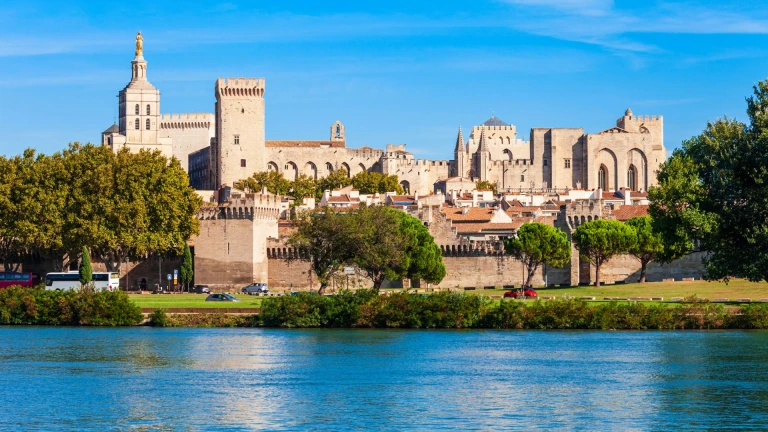Traveling to France? Here are Important Things an Indian Traveler Must Know
Traveling to France is a dream for many, and as an Indian traveler, the prospect of exploring this beautiful country is both exciting and intriguing. France, with its rich history, diverse culture, delectable cuisine, and iconic landmarks, offers a unique experience that can be both rewarding and challenging. To ensure that your trip is as smooth and enjoyable as possible, here's a comprehensive guide on important things Indian travelers should know before embarking on their journey to France.
Also Read: 15 Things to do in Belgium for a Complete Travel Experience

1. Visa Requirements and Documentation
Before planning your trip, it's crucial to understand the visa requirements for Indian citizens traveling to France. Ensure that your passport is valid for at least six months beyond your intended date of departure and start the visa application process well in advance. The Schengen visa is typically required for entry into France.
Documents required for France Visa Application:
Original Passport valid for at least 6 months from the date of entry into France with a minimum of two blank pages
Copies of old passports or old visas (if available)
A duly completed and signed France visa application form
Two recent colored photographs as per France visa photo specifications - against white background taken in the last 3 months, 35 mm X 45 mm in size, matt finish, and 80% face coverage
Bank statement of last 6 months with sufficient balance; updated and attested
Income Tax Returns or Form 16 for the last 3 years
Confirm return flight ticket
Confirmed hotel reservation
Cover Letter – explaining clearly your purpose of the visit
Travel Insurance (minimum coverage of EUR 30,000 or INR 27,28,320)
Daywise travel itinerary explaining the trip
2. French Culture and Etiquette
Understanding and respecting the local culture is key to having a positive travel experience in France. The French take pride in their culture, language, and traditions. Learn a few basic French phrases, as many locals appreciate the effort to speak their language. Additionally, be mindful of social norms, such as greeting with a kiss on each cheek, dining etiquette, and the importance of punctuality in social and business settings.

3. Currency and Banking
The official currency in France is the Euro (EUR). Inform your bank about your travel dates to avoid any issues with your credit or debit cards. While major credit cards are widely accepted, it's advisable to carry some cash for smaller establishments and rural areas where card acceptance may be limited. Familiarize yourself with the exchange rates to make informed financial decisions during your stay.
4. Health and Safety
Ensure you have comprehensive travel insurance that covers medical expenses, as healthcare in France can be expensive for non-residents. Familiarize yourself with the emergency services number (dial 112) and carry essential medications along with a prescription. It's also advisable to check for any travel advisories or health precautions, especially if traveling during peak flu seasons.
5. Transportation in France
France boasts the most extensive train network in Western Europe, making it an ideal country for rail travel. The national rail company, SNCF (Société Nationale des Chemins de Fer), operates efficient trains connecting major towns. Rural areas are covered by buses, but their services can be sporadic with inconvenient departure times. For those venturing off the beaten path, having personal transport is recommended.

Canal and River Trips
By Train SNCF (0844 848 5848) manages one of the world's most efficient, comfortable, and user-friendly railway systems. Despite the closure of some rural lines, SNCF's trains remain fast, clean, and reliable, covering most of the country. The pride of the French rail system is the high-speed TGV (train à grande vitesse), reaching speeds of up to 300kph, and its offshoot, Eurostar. The expanding TGV network, centered in Paris, extends north to Lille, east to Strasbourg, south to Marseille and the Mediterranean, and west to Bordeaux and the Spanish border. Spur lines also serve Brittany, Normandy, the Alps, Pyrenees, and Jura.
iDTGV trains, available online only, compete with low-cost airlines, offering quiet areas, a bar, and entertainment facilities. These trains cover over 30 destinations from Paris, allowing travel time changes for an additional fee. Intercité encompasses trains providing intercity services on routes not upgraded to TGV speed. Though not as fast, they feature decent facilities, including restaurant cars. Intercité sleeper services link Paris, Toulouse, the Alps, and the south. TER regional express trains cover local services.
Special tourist trains, not part of the SNCF system or covered by standard rail passes, offer discounts to rail-pass holders. The Petit Train Jaune, winding through the Pyrenees, is a popular example.
Tickets and Fares
Tickets can be purchased online or at train stations (gare SNCF). Touch-screen vending machines with English instructions sell tickets for express services in most stations. Separate machines for regional (TER) services have basic English labeling. All tickets, excluding passes or computerized tickets, must be validated in orange machines by the platform entrance, following the instruction "Compostez votre billet" ("validate your ticket").
Free timetables for specific destinations are available at stations. The term "Autocar" (often abbreviated to "car") on the timetable indicates that the service is covered by an SNCF bus, accepting rail tickets and passes.
Off-peak travel (période bleue or blue period) is cheaper than peak hours (période blanche or white period), typically Monday mornings and Friday and Sunday evenings. iDTGV fares from Paris to Nice start at €56 or INR 5092.86, and as low as €30 or INR 2728.32 one-way to Toulouse. Tickets are sold up to three months in advance on national trains and four months on TER. TGV allows seat selection, and reservations are mandatory on certain Intercité services.
Discount tickets, known as tarifs Prems, are available on specific mainline routes up to ninety days in advance. These tickets, starting at €25, are non-refundable and cannot be changed. Last-minute offers can be checked on the Trainline.com website.
Rail Passes
SNCF offers travel cards valid for one year, purchasable online, by phone (33 892 35 35 35), through accredited travel agents, and at main gares SNCF. The Carte Weekend (€75 or INR 6820.80) provides a 25 to 50 percent discount for cardholders and a companion on weekend journeys, including TGV trains. The Carte Jeune (€50 or INR 4547.20) for 12- to 28-year-olds offers a 25 to 50 percent discount at any time. Similar deals are available for seniors (Carte Senior; €60 or INR 5456.64) and families with children under 12 (Carte Enfant +; €75 or INR 6820.80).
Non-Europeans can opt for the France Rail Pass (starting from $205/$371 or INR 17026.18/30813.24) for three days of unlimited travel in one month) before arriving in France. The pass is available for 3- to 9-day periods.
6. Accommodation Options
France offers a wide range of accommodation options, from luxurious hotels to budget-friendly hostels. Book your accommodations in advance, especially during peak tourist seasons, to secure the best prices. Consider staying in boutique hotels or charming bed and breakfasts for a more authentic experience. Platforms like Airbnb also offer unique lodging choices.

7. Local Cuisine and Dining Etiquette
French cuisine is renowned worldwide, and trying local dishes is a must. Familiarize yourself with the menu and dining etiquette to fully appreciate the culinary experience. Tipping is customary but not as extensive as in some other countries. Understanding the tipping culture and service charges will help you navigate restaurant transactions smoothly.

8. Weather and Packing Tips
Check the weather conditions during your travel dates and pack accordingly. France experiences different climates depending on the region and the time of year. Layers are often a good choice, and don't forget essentials like comfortable walking shoes, adaptors for electronic devices, and any specific items you may need for your planned activities.
9. Cultural Attractions and Landmarks
France boasts a plethora of cultural attractions and landmarks, from the iconic Eiffel Tower in Paris to the historic Palace of the Popes in Avignon. Plan your itinerary well in advance, considering the opening hours, ticket prices, and any special events or exhibitions. Booking tickets online can save time and provide access to skip-the-line options at popular attractions.

10. Language Barrier and Communication
While English is widely spoken in tourist areas, especially in larger cities, learning some basic French phrases can enhance your overall experience. Locals appreciate the effort, and it can make communication smoother, especially in smaller towns or rural areas where English may not be as prevalent.
Also Read: Is it worth including Estonia in your European itinerary from India?
Traveling to France as an Indian can be a transformative experience filled with cultural enrichment, culinary delights, and breathtaking landscapes. By preparing in advance, understanding the local customs, and embracing the French way of life, you'll be well-equipped to make the most of your journey. Bon voyage!
Published at
About Author
Manya Shastry
Subscribe our Newsletter
Get our weekly tips and travel news!
Related Posts
10 amazing hacks for comfortable train journeys in India
Make your Indian train journey comfortable with these 10 hacks: choose the right class, pack essentials, stay hydrated, wear comfy clothing, charge devices, bring entertainment, prioritize safety, book lower berths, use travel apps, and socialize.
10 Amazing New Attractions in Singapore - Indian Travelers Guide 2025
Explore the new yet amazing attractions of Singapore
10 Hidden Destinations In Northeast India
Immerse yourself in the magic of unexplored landscapes, vibrant cultures, and breathtaking adventures. Ready to redefine your wanderlust?
10 Important Things you should know about South Korea before traveling
Explore the wonders of South Korea with 10 Important Things to Know Before Traveling. This blog unveils cultural insights, from decoding Hangul to navigating bustling streets.
10 Luxury Hotels in Bangalore That Are Too Good To Be True
From regal palaces to eco-chic retreats, join us as we uncover the city's 10 Luxury Hotels that redefine opulence!
Latest Posts
How much will a trip to Indonesia cost from India? Travel Budget Guide
Need to budget a tropical getaway from India to Indonesia?
Indian Traveler's 7 Day Itinerary for Island Hopping in Indonesia
Your perfect Indonesian island getaway guide is here!
Best 4-Day Itinerary for Kashmir, India
Ready to fall in love with Kashmir in just four days?
10 Things You Need to Know If You’re Visiting Kashmir in India
Ready to immerse yourself in the magic of Kashmir?
Is 2 Days Enough to Explore Jaipur? Weekend Trip Itinerary
Got just 2 days in Jaipur? No worries!

